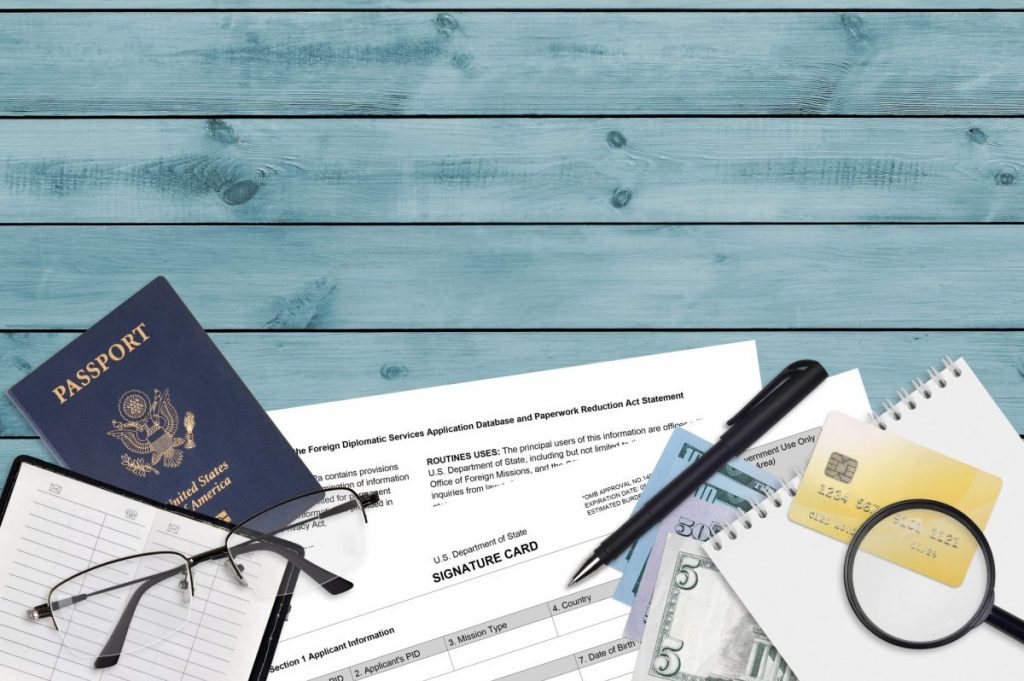While waiting for a call from the hiring manager, you might probably wonder why they take some time to finally give you an update about your job application. Well, one of the reasons could be a background investigation or a reference check. You might ask, “How long does it take for a background check?” Let’s dive in.
First off: What do employers look for in a background check anyway? Potential employers perform background investigations and reference checks to obtain information about candidates from sources other than those provided by the applicants themselves. In a background investigation, employers determine if an applicant has a record of poor credit history, criminal offense, motor vehicle violations, or inaccurate education or work history. In a reference check, potential employers contact applicants’ previous employers, colleagues, and educators to validate their previous work experience. They also do this to know an applicant’s knowledge, skills, abilities, and personality.
Now, how long does it take for a background check? They actually depend on various factors, such as data availability, state policies, and previous company regulations. Sometimes, they only take one to two days. On the other hand, in complex cases such as federal background checks, they may take at least 30 days.
To make sure that you will land your target position, you should know the specific policies of a pre-employment background check of your potential company.
What Happens During a Pre-employment Background Check?
During the hiring process, your potential employer may ask you about your background. For instance, they may want to know your employment history, education, and skills. However, they may also want to collect other details, including criminal record, financial and medical histories, or even social media posts. Asking questions about such information or requiring a background check is legal, but employers are not allowed to know your medical history unless they are already offering you a job. They are also not allowed to ask for additional information because of your race or ethnicity.
In a typical background check, potential employers use an applicant’s name, birthday, and social security number (SSN) to collect relevant information from public and private databases. They investigate the applicant’s criminal history and conduct reference checks. They also consider other checks depending on a target position. For example, if you, as an applicant, want to fill in a salesperson position, they need to make sure that you can be entrusted with money. Hence, they would check if you’ve committed crimes in the past; which include embezzlement, credit card and tax fraud, phishing, and identity theft.
What do employers look for in a background check? Here are the common types of background checks:

Identity
Employers validate your identity to check if you provided them with the correct details apart from your name, such as citizenship, SSN, and other personal details.
Educational Degrees
Potential employers verify your educational background if you want to be part of instructional and research faculties, executive positions, and operational positions.
Licenses and Certifications
If you are applying for a position that requires a government-issued credential, your employers will definitely verify the validity of your license and certification, such as those given to certified public accountants, medical doctors, and teachers.
Credit Report
For all finance-related positions, employers will check the applicants’ credit report to ensure that they are financially responsible. This is important if they will have access to company funds or manage its budget.
Driving Record
Employers will determine if applicants previously had any accidents or received citations if they are applying for positions that involve driving a vehicle.
Drug Screening
Employers will ask applicants to undergo drug screening if they want to fill in a position in law enforcement or roles that need a driver’s license.
Criminal History
Employers will investigate an applicant’s criminal history regardless of the target position. They will check if the applicant was convicted of a crime, is currently on probation, is a sex offender, has outstanding warrants, or is on a government watch list.
Employers can also contact an applicant’s personal references and previous employers and look through public social media accounts for additional information, especially if they want to know if the applicant’s personality will match their company values. Through a pre-employment background check, they can ensure that candidates are honest, credible, and trustworthy.
How Long Does It Take for a Background Check: Its Importance in Employment
Employers screen applicants carefully through a background check as part of the hiring process. They do so to ensure that potential new hires do not have dirty secrets that could damage their business. Background checks can also help employers select candidates that unlikely pose harm to their clients or colleagues.
Employers conduct background checks through their in-house team or a third-party agency. Background check services are also available, so employers can easily get a background check report. Some employers and employees often wonder how long a typical background check takes. However, its turnaround time depends on many factors. For this reason, it can vary from 2 to 4 days if there are no complications; or it can take 30 days or more depending on an applicant’s circumstances.
How long does it take for a background check to be completed? Let’s look at the variables below.
Identity Check
Identity checks can be typically completed right away. However, they can also take about two days if an employer conducts a thorough check. During an identity check, employers may verify the details on an applicant’s passport, social security number (SSN), or driver’s license. Regarding the SSN, they may also trace it to verify if it matches with the applicant’s personal information.
Credit Check
A credit check may wrap up in about one to two days. Through a credit check, an employer searches credit bureau records for an overview of the applicant’s credit history.
Employment Verification
This kind of check may take two to three business days. When potential employers verify an applicant’s employment history, they may contact the staff of the human resources department of previous employers. They may also check the periods of self-employment of some candidates. However, if an applicant worked overseas, employment verification may take longer than three days.
Academic/Educational Verification
A typical report of an applicant’s educational background can be generated within two to three business days. During this check, potential employers reach out to various schools and universities to verify the degrees earned or awards received by an applicant. However, conducting this check may be extended if the applicant studied abroad or attended conferences in schools in other countries.
Professional Qualification Check
Checking the professional qualifications of an applicant takes an average of two business days. It involves verifying memberships, licensure, and certifications.
Motor Vehicle Records
The turnaround time of checking motor vehicle records can range from a few days to a few weeks because it depends mostly on the policies of a certain state.
Global Watch List Check
This background check can be completed within one to two days. Employers can easily access the watch lists of fraud practitioners, people with regulatory sanctions, and potential terrorists.
A background check is necessary to select the right candidate for a given position. Although the time to complete a background check varies depending on many factors, doing so will ensure that a new hire meets all the requirements of the target position. It can also help prevent future problems for a company.

How Long Does a Criminal Background Check Take for a Job?
A typical criminal background check, such as searching a national criminal database, may be completed in a few hours or several business days. However, this timeframe may be extended if a candidate has criminal histories in other countries. In a criminal background check, employers may search different databases, including those of national, federal, state, and county criminal courts, for information about an applicant’s criminal history, such as pending criminal cases, felony, and misdemeanor.
How Long Does a Federal Background Check Take?
The turnaround time of a federal background check is usually 30 days to 3 months, or even longer, given that it involves searching for crimes on a federal level. In a typical federal background check, employers search for criminal offenses prosecuted in US federal courts, then gather all case documents. They specifically look for violations of federal criminal law, such as crimes committed on federal property, embezzlement, federal tax evasion, identity theft, interstate trafficking, and mail fraud. They conduct this check to ensure that they have a comprehensive profile of candidates, especially certified public accountants, public sector employees, and roles that need access to proprietary financial data.
What are the Causes of Delay in Background Checks?
There are instances in which generating a complete background check report may be delayed. Here are some factors that cause delays in background checks:
- Inaccurate or incomplete request forms submitted by an employer
- Failure of an applicant to sign or submit the required authorization or release forms
- Confusion over names, especially if an applicant has a common name
- Lack of fully computerized records, especially data from universities and previous employers
To speed up background checks and thus shorten your waiting time, you should provide accurate information, especially the basic ones like your name, SSN, and birth date. If you worked in a different country or studied abroad, you should provide the necessary documents during the interview.
What Do Employers Check in an Applicant?
By now, you probably know what employers are looking for when they conduct a background check. It includes consulting with references and checking criminal records. If you are applying for a position or role that needs handling public or financial transactions, your potential employers will definitely subject you to a pre-employment background check. Through cross-referencing, they verify if the details in your resume are true and accurate. They specifically validate your identity, work history, educational background, and other credentials.
To ensure that you pass all forms of background checks, you must provide accurate information in your resume. You can update your old resume or prepare a new one. If you are not confident with what you have prepared, have it checked by one of our resume writing experts now.


